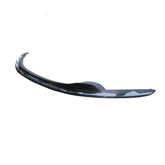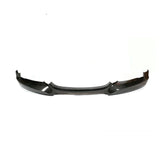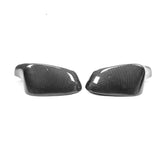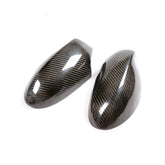A well-maintained exhaust system is crucial for your vehicle's performance, fuel efficiency, and environmental compliance. Regular maintenance can prevent costly repairs and ensure your car runs smoothly and safely. Here's an insider's guide to keeping your exhaust system in top condition.

Understanding Your Exhaust System
Before diving into maintenance, it's essential to understand the components of your exhaust system and their functions:
- Exhaust Manifold/Headers: Collect exhaust gases from the engine's cylinders and deliver them to the exhaust pipe.
- Catalytic Converter: Converts harmful pollutants in exhaust gas into less harmful emissions.
- Muffler: Reduces exhaust noise.
- Exhaust Pipes: Carry exhaust gases through the system and out the back of the vehicle.
Regular Inspections
- Visual Checks: Regularly inspect your exhaust system for rust, holes, or cracks, especially in older vehicles or those frequently driven in harsh conditions. Pay close attention to welds and areas where moisture can collect.
- Listen for Changes: Be alert to changes in the exhaust sound, which can indicate leaks or issues with the muffler.
- Check for Performance Issues: A decrease in fuel efficiency or engine performance can suggest problems with the exhaust system, such as clogs or leaks.
Preventative Maintenance Tips
- Keep it Clean: Salt, dirt, and moisture can lead to rust and corrosion. If you live in an area that uses road salt, regularly wash the underside of your vehicle to remove these corrosive agents.
- Protect Your Catalytic Converter: Use the correct type of fuel for your vehicle, and avoid letting your car run out of gas, as this can damage the catalytic converter.
- Avoid Short Trips: Short trips can prevent the exhaust system from reaching its optimal operating temperature, leading to moisture accumulation in the system, which can cause rust over time.
Handling Repairs and Replacements
- Address Issues Early: If you notice signs of exhaust problems, such as louder than normal exhaust noise, rattling noises, or a sulfur smell, address them promptly to avoid more significant issues.
- Choose Quality Parts: When repairs are necessary, opt for high-quality replacement parts that match your vehicle's specifications. This is particularly important for the catalytic converter and muffler.
- Professional Installation: Exhaust system repairs often involve welding and precise fitting. Unless you have the necessary skills and equipment, it's best to have repairs done by a professional.
Upgrading Your Exhaust System
- Performance Upgrades: Consider upgrading to a performance exhaust system for improved efficiency, power, and sound. Ensure any modifications comply with local emissions and noise regulations.
- Material Matters: Stainless steel exhaust systems offer superior durability and corrosion resistance compared to standard steel systems.
Legal Compliance and Environmental Consideration
- Emissions Testing: Regularly check that your vehicle complies with local emissions standards. A failing exhaust system can lead to increased pollutant emissions.
- Noise Regulations: Be mindful of local noise regulations when considering exhaust modifications or repairs.
Maintaining your exhaust system is an ongoing process that can significantly impact your vehicle's performance, safety, and environmental footprint. By conducting regular inspections, addressing issues promptly, and choosing quality parts and professional service when needed, you can ensure your exhaust system continues to function efficiently and effectively.










